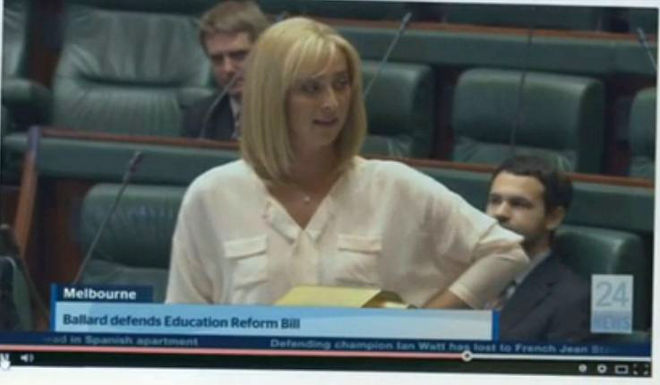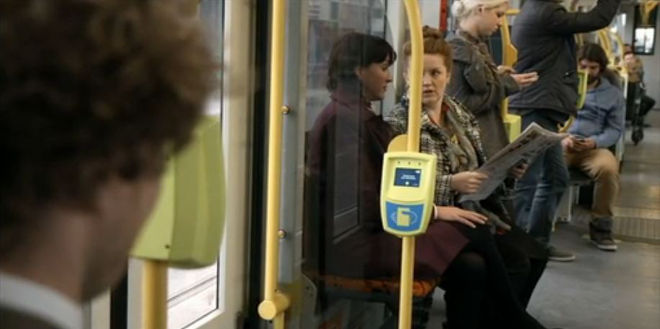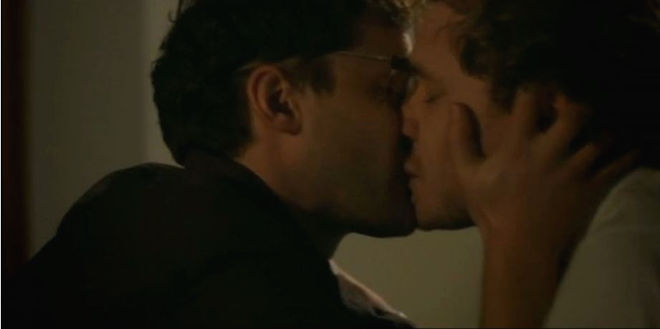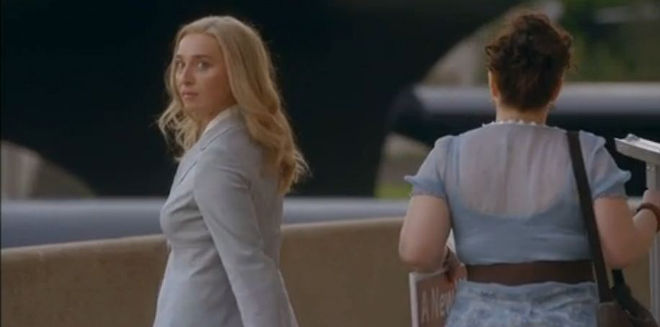Is Channel Ten’s #Auspol Drama ‘Party Tricks’ Any Good?
'Party Tricks' is more 'House Of Cards' than 'The West Wing': more interested in the people than the politics.
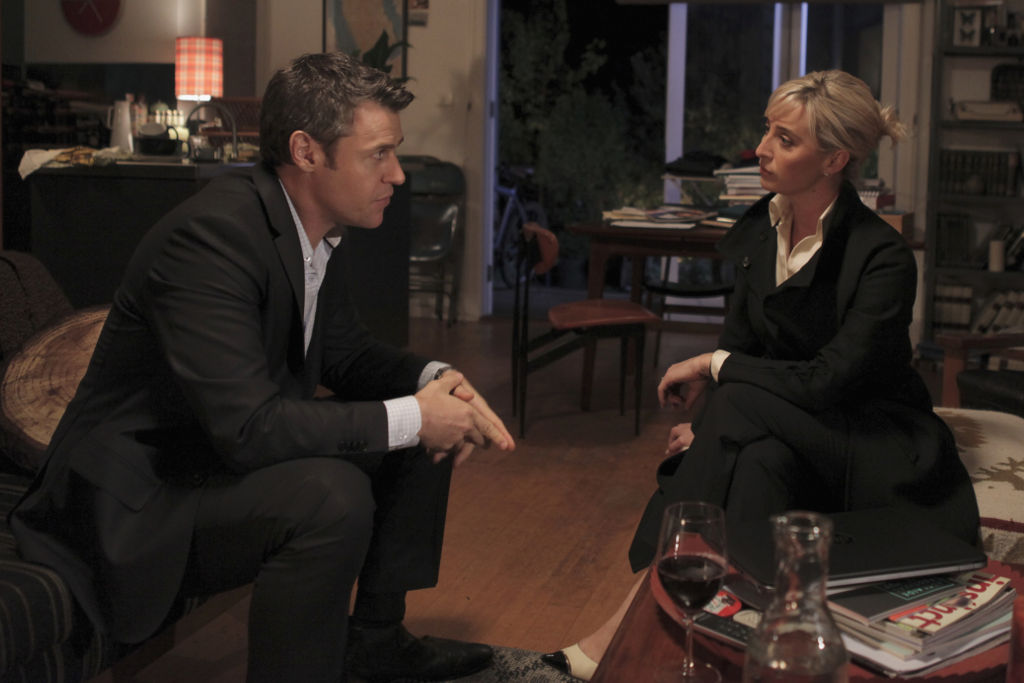
This piece deals with last night’s series premiere of Party Tricks. Spoilers ahead.
–
Who in their right minds would try and make a miniseries about sexy pollies, in Australia, in 2014?
The tiny size of our political class means that our dear leaders have never had quite enough distance from their constituents to create any sort of mystique around themselves — and the current climate is especially ardour-dampening. Still, certain sectors of the nation are irredeemably intrigued with the current conga line of suckholes, and Network Ten’s new miniseries Party Tricks — from the people who brought you Offspring, Puberty Blues and Secret Life of Us — is attempting to expand the parameters of that fascination.
Surely everyone who’s not already welded uncomfortably to one side or another is a member of the pox-on-both-your-houses brigade; even if you cast attractive humans like Asher Keddie and Rodger Corser as the power players with a secret sexy past, the minute you slap them on a corflute with major-party branding, your genitals start making polite excuses and inching towards the door.
Scott Ludlam’s hair, Tanya Plibersek’s glasses and Malcolm Turnbull’s leather jacket being possible exceptions (depending on your philosophy/gag reflex), when was the last time anything about Australian politics made you fantasise about reenacting Partition in the back of a Comcar?
As a self-hating yet compulsive sideline-gawker at the infuriating spectacle that is Australian politics, it’s certainly a bit difficult to detach the tropes and devices used in Party Tricks from their real-world inspiration — and to avoid mentally swapping the characters out for their real-world counterparts.
David McLeod (Corser) is a smooth-talking silver fox, widowed dad and “media personality”, who’s apparently somewhere on the continuum between Stan Grant and Grant Denyer in terms of industry credibility. He’s being parachuted in as wannabe Premier from outside the legislature, Campbell Newman-style — which, while rare, is actually more plausible than him being a party stalwart: Libs who’ve come up through the party structure are almost invariably doughy-faced man-toddlers who’ve looked like that since they were 14.
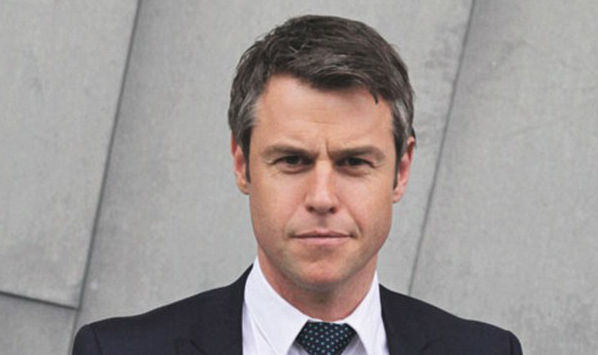
He’s sort of Malcolm Turnbull, if anyone at all still grudgingly put the Minister for Communications on their “If I had to bang a conservative at gunpoint” list.
Victorian Premier Kate Ballard (Keddie), perhaps unsurprisingly, has more in common with our best-ever female PM than half a surname: critics snark about her deliberate barrenness, her body, her husband (not a hairdresser, but too rich for some folks’ liking), and her hairstyle — and she initially came to power without winning an election.
When we first see her as Premier, Ballard is nimbly brushing off quavering smears from the desiccated Opposition Leader that she’s “childless and out of touch”, giving impeccably on-message radio interviews to Jon Faine, and fighting in Parliament for some apparently very important education reforms.
We see women on the tram scrutinising Ballard’s dress sense and pondering whether her haircut makes her look “too severe”; they give her points for her figure, and take the points away again with a wry “no kids”.
Another thing she has in common with old mate Jules is an old flame popping up as an unexpected distraction during an election year: weeks out from polling day, the conveniently embattled Liberal leader steps down to allow Guy Smiley to run for his seat, and for Premier.
McLeod seems to be significantly less dodgy than Bruce Wilson – a low bar to clear, although we’re only one episode in – but the problem is that, back when he was tiling Ballard’s bathroom on the regular, she was already an MP, they were both married, and it seems it dragged on over a few years.
In her shock and dismay, Ballard starts panicking that the Libs picked McLeod specifically because of their history; that a week out from the election they’ll call a press conference, and McLeod will be all “In the interest of full disclosure I feel it is my duty to inform the electorate that I totally hit that! Please feel free to high-five me with your votes, bros.” This is patently absurd, but she’s not wrong to worry that she’ll come off worse if the story does leak. “I’ll be a punchline!” she frets to her speechwriter and confidante, Oliver Parkham (Charlie Garber, channelling a more earnest Ollie Reeder), wondering what powerful blokes might have talked about while sitting around all “boozed in a corporate box”.
She then asks Oliver to secretly write some notes for a speech where she reveals the whole story — which can’t possibly backfire at all given that he lives with his journalist boyfriend (Oliver Ackland, always a welcome inclusion). The journo/political staffer relationship is a standard trope in political dramas, but it’s nice to see a same-sex couple filling the roles with so little fanfare and so much sexy kissing.
Meanwhile, McLeod is unflappable: the only time we see him show any real emotion (choking up while evoking the memory of his dead wife as his inspiration during a press conference shouldn’t count) is when his adviser suggests his teenage daughter could be dressed more appropriately. He’s a familiar yet fresh face, a doting dad, and remembers the name of two dozen staffers he’s only just been introduced to. He’s come pretty far on charm and confidence – and that, not their history, is what should have Ballard worrying about the polls. Given how much of Ballad’s time and energy the secret is already taking up, and the zero time it took for her puffed-up press adviser (Angus Sampson, trying to look a decade older than he is) to be left out of the loop, it’s clear the affair will only be a distraction because she’s letting it.
But this will only fly if the audience can get as invested as the character apparently was in the affair — and that depends on the writing and chemistry between Keddie and Corser. The only scene they share in this first episode in the opening scene, their first meeting: she’s an awkward, earnest first-time candidate, and he’s a super-smarmy reporter who gives her enough rope during a live cross on a Melbourne rooftop, calls her “earnest but attractive” and compares her to Princess Diana. (“She wasn’t a politician,” says Ballard witheringly; “If she had been, she would have won” he smarms back — ignoring reality to make his point like he’s some kind of politician.) It’s a standard antagonistic romcom meeting: he’s a sexist jerk, she takes him down a peg, he watches her leave with a “we’re gonna bang later” look on his face. But there’s a spark in their snark, and watching them spar later on could be more fun than the sexytimes.
Right down to a pre-dawn running scene, Party Tricks is more House Of Cards than The West Wing: it’s more interested in creating dramatic tension out of the human weaknesses and wants behind the public faces than out of substantive hypotheticals about the towering pile of problems in state and national politics and policy. But it’s a carefully even-handed portrayal of Australian state politics for a national audience: not discussing policy details, couching everything in reassuring weasel words about change and future, not mentioning how fundamentally broken and depressing and spiritually empty Labor and the Coalition both are.
Like the repeated dualities of this election campaign-as-battle-of-the-sexes love story – He’s blue; she’s red! He’s smarmy; she’s earnest! He’s a celebrity parachuting into the party; she’s a hyper-competent career pollie! He supports Hawthorn; she has a soul! – we’re reminded that politics is itself just a series of meaningless either-or choices, only there to create conflict and drama while we speed towards the predictable conclusion. We might as well watch some sexy people make out while we hitch a ride in this handbasket.
–
Party Tricks screens on Mondays at 8.30pm, on Channel 10.
–
Caitlin Welsh has written for The Guardian, Mess + Noise, FasterLouder, and The Vine; she tweets from @caitlin_welsh
